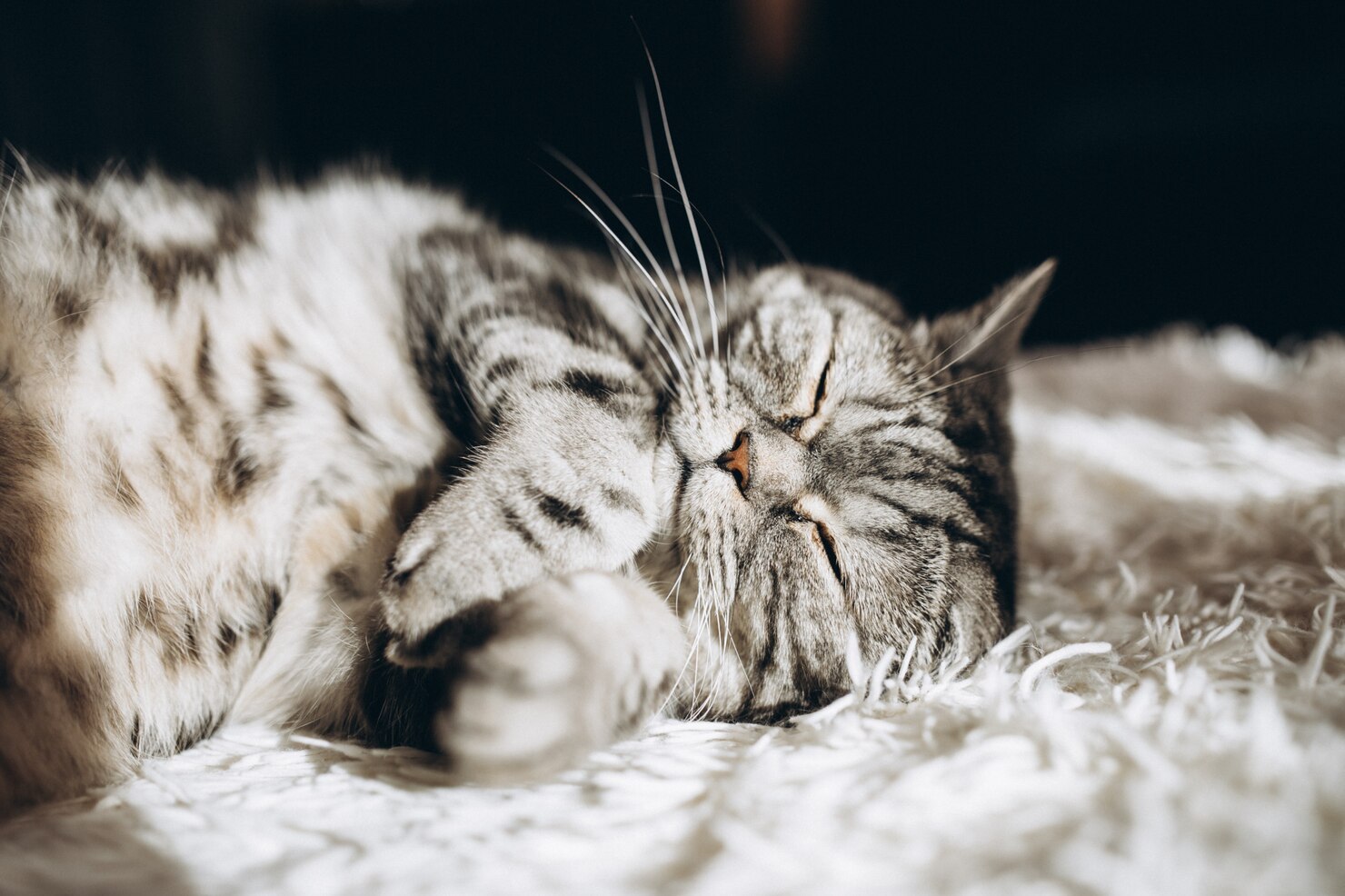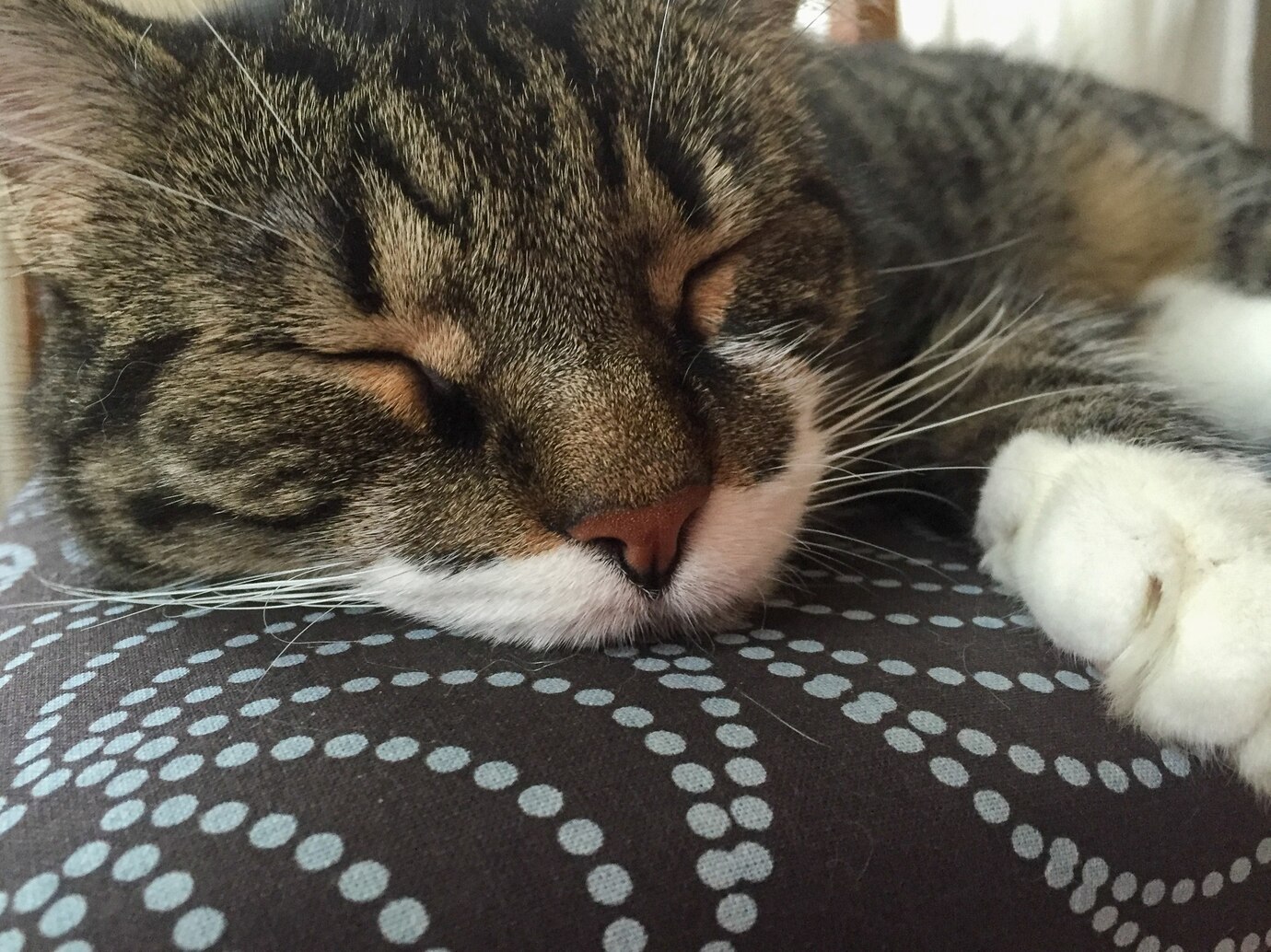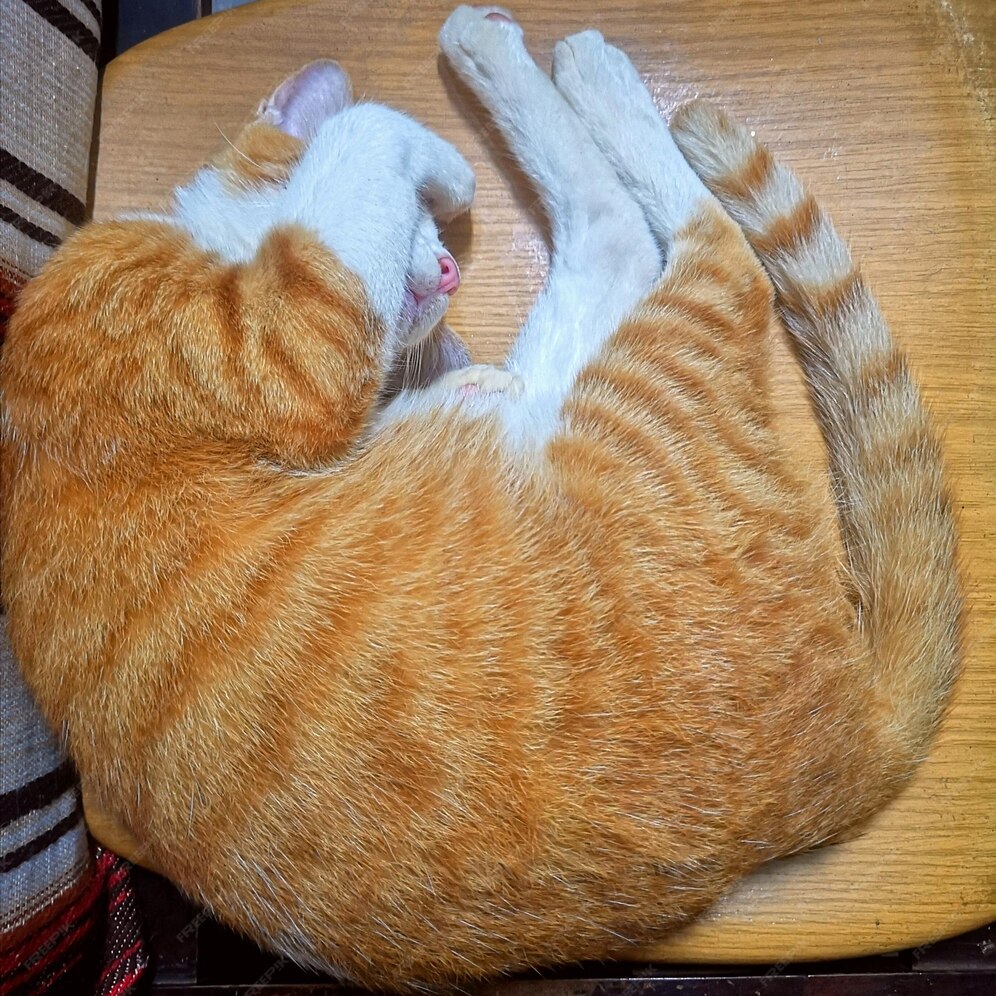Do Cats Dream?

(Photo: credit to Freepik.com)
Have you ever pondered the question: “Is my cat capable of dreaming?” Simply put, the answer is “yes.” Like most other mammals, cats do dream. Why? Research has shown that it’s an essential occurrence to help their brains organize and arrange images from the day.
Dreaming mainly occurs during REM (rapid eye movement) sleep when their brains, similar to our brains, exhibit activity akin to wakefulness. And while the specifics of cats’ dreams are, as yet, unknown, it’s likely that their brains are reviewing their days’ activities, consolidating these memories, and processing various other experiences.
(Photo: credit to Freepik.com)
Dreams also help cats reinforce learning, retain memories, and even serve as a form of enrichment, paw-tentially allowing them to imagine such splendiferous scenarios as catching mice as large as cars! Close observation of your own cat can provide you with clues both about her sleep behavior and when she may be dreaming. With time, patience and focused attention, you may even be able to guess what she’s dreaming about.
Overt signs that your cat is dreaming may include: twitching, particularly of her whiskers and paws, body movements, running-like motions, chirping and purring sounds, muffled meows and various facial expressions. Fortunately, however, the brain is equipped with a safety feature that prevents both cats and humans from physically acting out their dreams: the pons.
(Photo: credit to Freepik.com)
What, then, DO cats dream about? Do they dream about their pet parents? Do they dream about interacting with their housemates? Do they dream about hunting mice or chasing after birds? Do they have nightmares? While there may not be truly definitive answers to these questions yet, by closely observing cats while they dream, and considering what’s known about dreaming in other species, one can make some educated guesses as to what they do dream about.
Dreaming about their daily experiences: Since most mammals use dreams to process the events they’ve experienced, it’s reasonable to assume that cats re-live their daily experiences at night, perhaps with some imaginative additions. Whatever your own “meow-meow” may have been interested in during the day will, in all probability, play a featured role in her dreams that same night.
Dreaming about their pet parents: Cats, in all probability, will dream the most pleasant and pleasurable of dreams about their devoted and doting pet parents.
Dreaming about their preferred pastimes: Our feline friends are equally likely to dream about such exhilarating and satisfying activities as eating, playing games and “hunting” such indoor prey as laser beams, plastic balls and rolling cat springs, interactive wands and treat-dispensing toys.
Nightmares: If cats have had an especially frightening experience during the day, such as a fight with a housemate or something as seemingly mundane as the sound of the vacuum cleaner, the apartment buzzer or some unexpected visitors, they may indeed have what we would consider to be nightmares.
In conclusion: Sometimes when cats are sleeping, they may twitch, stretch, snore, purr or make unusual squeaking noises — all associated with REM sleep. When your own cat twitches in her sleep, it’s generally due to signals being sent to her brain during the “dreaming” phase.


